 Loading…
Loading…
PROFS Statement on ICE Policy Guidelines on Student Visas
 Loading…
Loading…
 Loading…
Loading…
PROFS is pleased to cohost a public forum on college affordability. Please feel free to download and share this poster for the event.
 Loading…
Loading…
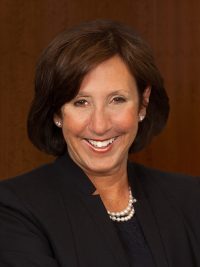
PROFS is pleased to announce that University of Wisconsin System Regent Tracey Klein will serve as the third panelist at the upcoming forum on affordability and public higher education on Thursday, October 24.
Klein, a health care attorney for more than 30 years, was named to the Board of Regents by Governor Scott Walker in 2016. She is a chairs the Regent Education Committee and is also a member of the Executive Committee.
The forum will focus on the cost of delivering education, why it rises, and the implication of rising expenses – pressure on the state to subsidize the cost, students to pay higher tuition and the university to raise funds and pursue partnerships.
It will be held in the De Luca Forum in the Discovery Building at 4 pm on Thursday, October 24. Klein will be joined by UW-Madison professor Nicholas Hillman (moderater) and panelists David Feldman (professor, William & Mary) and UW-Madison Vice Chancellor Laurent Heller.
PROFS is pleased to announce a campus forum on the cost of higher education on Thursday, October 24. This event will be held at 4 pm in the De Luca Forum in the Discovery Building, 330 North Orchard Street, and is open to the public.
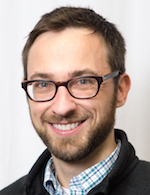
The forum, moderated by UW-Madison Education Professor Nicholas Hillman, will examine college cost, in particular why costs have risen so dramatically in recent years and the implications of rising expenses. We will look at the the resulting pressure on the state to increase funding and students to pay higher tuition, along with pressure on the university to raise funds and pursue partnerships.
Our panel includes William & Mary Economics Professor David Feldman and UW-Madison Vice Chancellor for Finance and Administration Laurent Heller. A third panelist will be named soon.
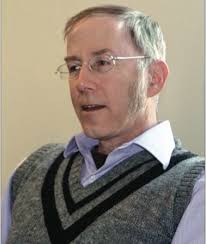
David Feldman received his A.B. from Kenyon College and his M.A. and Ph.D. from Duke University. Before joining the faculty at William and Mary in 1989, he taught at Duke and Colgate University. His current research examines college cost, the demand for higher education, and the role of federal and state policy toward higher education. He has published two books on the cost of higher education with his faculty colleague Robert Archibald, The Road Ahead for America’s Colleges and Universities and Why Does College Cost So Much?
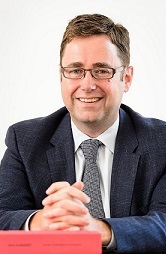
Laurent Heller began his appointment as the Vice Chancellor for Finance and Administration in August, 2016. Heller has extensive experience in budgeting and finance, higher education strategy and business operations, having served as Vice Chancellor, Financial Planning and Analysis at the University of California, Berkeley. He is a graduate of UC Berkeley.
UW-Madison’s Tommy G. Thompson Center on Public Leadership is a cosponsor of this event.
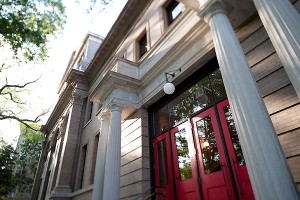 PROFS is pleased to sponsor a public forum on shared governance at 3 pm, Thursday, May 3 in the Wisconsin Idea Room in the Education Building.
PROFS is pleased to sponsor a public forum on shared governance at 3 pm, Thursday, May 3 in the Wisconsin Idea Room in the Education Building.
Public higher education has faced enormous challenges in recent years — massive funding cuts, declining student enrollment, shifting perception on the value of a degree. Many legislative leaders have called for the University of Wisconsin System, and UW-Madison in particular, to operate more like a business, often citing shared governance as a major impediment to institutional efficiency.
Our panel of nationally known experts will guide our discussion.
Karen Herzog, Milwaukee Journal Sentinel higher education reporter, will moderate.
This event is free and open to the public. Refreshments will be served.
The Legislature is in the final weeks of the 2018 session and PROFS is closely monitoring several bills that could that could seriously affect UW-Madison:
Wisconsin Retirement System Seminar
PROFS is cosponsoring a La Follette School of Public Affairs seminar on the history of the Wisconsin Retirement System at 12:30 pm on Wednesday, February 21 in Union South. Wisconsin’s pension system is regarded as one of the best, and Gary Gates, the first secretary of the Department of Employee Trust Funds, will explain how the system was created and why Wisconsin has not experienced shortfalls like many other states.
Spring Primary
The Wisconsin Spring Primary is Tuesday, February 20. The only statewide race on the ballot is for Wisconsin Supreme Court where three candidates are vying for two spots on the April 3 general election ballot. More information on voting in Wisconsin is here.
Federal Relations
PROFS Steering Committee member Judith Burstyn recently met with Congressman Mark Pocan as a member of his Higher Education Advisory Group. Pocan gave the group an update on Congressional action related to higher-education policy and federally funded research.
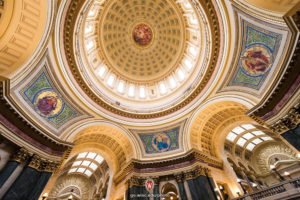 Assembly Bill 299, dubbed the Campus Free Speech Act, passed the Assembly Wednesday, June 21 on a 61-36 vote. Republican Bob Gannon of West Bend joined the Democrats in opposing the bill. A statement of PROFS’ opposition to the bill is here.
Assembly Bill 299, dubbed the Campus Free Speech Act, passed the Assembly Wednesday, June 21 on a 61-36 vote. Republican Bob Gannon of West Bend joined the Democrats in opposing the bill. A statement of PROFS’ opposition to the bill is here.
Representative Jesse Kremer (R-Kewaskum), the bill’s main author, maintains the legislation is necessary to ensure all voices are heard on campus, citing incidents at Middlebury College and the University of California-Berkeley as evidence that free speech is stifled on college campuses.
PROFS lobbied against the bill, noting that in 2010 the University of Wisconsin Faculty Senate adopted a policy (Faculty Document 2186) that protects speech on campus. In 2015, the University of Wisconsin System Board of Regents adopted a resolution affirming academic freedom, including free speech, on all UW campuses.
Under the amended bill (below), the Board of Regents would be required to adopt a policy that would apply to all UW System institutions and supersede any existing Regent or campus policies. The legislation also requires mandatory punishments for students violators and employee and new student training on free speech annually.
The bill now moves to the State Senate.

 Loading...
Loading...
University of Wisconsin-Madison Population Health Sciences professor and PROFS Steering Committee member Dave Vanness recently spoke with WISN’s Mike Gousha about Assembly Bill 299 (Campus Free Speech Act). PROFS is registered against the bill.
 The University of Wisconsin System Board of Regents is meeting in Madison today, March 9. All meetings will be held in Gordon Dining and Event Center, 770 West Dayton Street. Livestream coverage of the full board meeting is here.
The University of Wisconsin System Board of Regents is meeting in Madison today, March 9. All meetings will be held in Gordon Dining and Event Center, 770 West Dayton Street. Livestream coverage of the full board meeting is here.
The Subcommittee on Investments and Committee on Education will meet before the full board begins at 9:30 am. The education committee will consider the post-tenure review policies of UW-Extension, UW-Parkside and UW-Stout.
The full board will hear updates from UW System President Ray Cross and Board of Regents President Regina Millner. Michael Crow, President of Arizona State University, will lead a discussion on public higher education and Susan Baxter, Executive Director of the California State University Program for Education and Research in Biotechnology, will discuss Cal State’s system-wide biotechnology efforts.
 For the first time since 1972, UW-Madison does not rank in the top five in research expenditures as ranked by the National Science Foundation. UW-Madison dropped from fourth to sixth this year, with $1.07 billion in research spending in 2015.
For the first time since 1972, UW-Madison does not rank in the top five in research expenditures as ranked by the National Science Foundation. UW-Madison dropped from fourth to sixth this year, with $1.07 billion in research spending in 2015.
Johns Hopkins University continues to lead in research funding ($2.31 billion), followed by the University of Michigan ($1.37 billion), the University of Washington ($1.18 billion), the University of California-San Francisco ($1.13 billion), and the University of California-San Diego ($1.1 billion). Among the top 30 universities, Wisconsin led among the four that experienced a drop in spending, with a 3.6 percent reduction.
UW-Madison Vice Chancellor for Research and Graduate Education Marsha Mailick noted the impact of disinvestment by the state:
“We are extremely proud of our faculty, staff and students but if Wisconsin is to remain at the pinnacle of American research universities, the state will need to reinvest to be sure we have the faculty positions and conditions necessary to attract and retain the best researchers.”